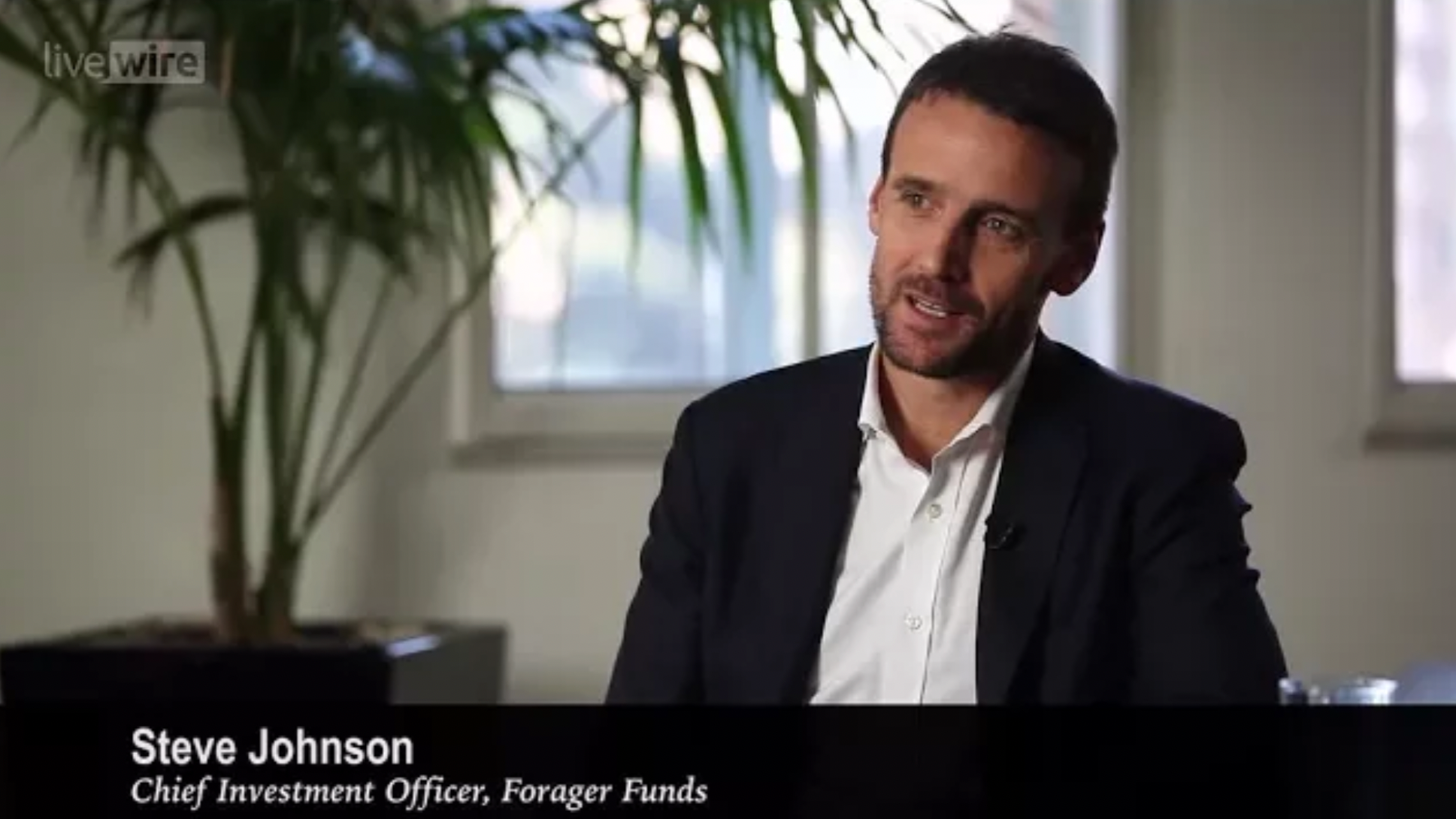Setting up your portfolio for market "kryptonite"

Livewire Markets
Inflation is the big problem on the horizon and central banks' rate hikes are going to be "kryptonite" for markets, said Steve Johnson, founder and CIO of Forager Funds. So how do you rebalance your portfolio for the oncoming storm? I sat down with Steve Johnson to work out how to tackle the big problems for markets and understand Forager's stock-picking process. Basically, it's time to throw out your 1970's inflation playbook and write a new one for an unpredictable future.
Over the past year, the Forager Australian Shares Fund achieved a return of 80.13%, and its International Shares Fund has hit 65.64% returns to end of May 2021. Navigating through the tough times, like COVID-19, is a lesson well-learned by Johnson and it shows in recent performance. His "be prepared for anything" and open-minded approach has kept the fund nimble, but the lesson came the hard way, following a few rough patches through 2017 and 2018. Johnson was candid in divulging the changes that needed to be made and now the team is better prepared than ever to tackle the next big challenge: inflation.
"It's been the headline of the newspapers and The Economist for the past few months, but inflation, I think is the big one. And I think it's bigger than usual," said Johnson.
Johnson has been following the leading indicators on supply chain shortages, price increases and believes wage inflation has been the "missing ingredient" for the past 10 years.
"I also think the extent that central banks need to raise interest rates has become kryptonite effectively. The days of putting interest rates up from 5% to 10% to slow the economy down (are gone). I think you have the same effect these days, putting interest rates up from 1% to 2% because there's so much leverage in the system," he said.
So, where do you find hidden gems in a market unprepared for inflation?
Commodities and financials are the broader consensus plays. While Johnson still believes there are safe havens to be found in these sectors, the old 1970s playbook won't help in tomorrow's market.
Stock holdings for when inflation hits
"Traditionally, you go back to the seventies and businesses with pricing power were great hedges against inflation because they just put their prices up to compensate it," said Johnson.
But today's market is coming off the back of a decade of "lower for longer" which has pushed valuations to record highs.
"I think the challenge at the moment is most of those businesses with pricing power are priced for very low-interest rates for a long period of time. So they're expensive and they're expensive because people think interest rates are not going to go up," he said.
However, interest rates don't always do what the market wants them to do. Just this week, the US Federal Reserve flagged an interest rate hike in the next two years, and it is likely (if not guaranteed) that Australia's central bank will follow a similar timeline.
However, it's not all bad news. Johnson said the commodities sector has been "an unloved sector" for a long time so these stocks are coming off a lower base (read: cheaper price). And Australia shares are well-positioned in this sector.
"I think that traditional value stuff has underperformed for a very, very long period of time," he added.
"The economic environment that's going to create inflation is going to be quite positive for a lot of those stocks. And I think people are underestimating how much profit they might make out. On the other side of this, there's been a lot of cost-cutting. These businesses have been cut to the bone. And if you finally get the demand side of things, filling in here, some of these businesses will be very profitable," he said.
So inflation, which will stopper growth stocks, could see another value stock revival because inflation means people are willing to pay more. This is usually where pricing power has played its strengths in the past and there are still some sectors where pricing power will help companies push through inflationary environments.
In addition to the commodities sector, there are two stocks Johnson mentioned in particular for this scenario, both are in the International Shares Fund:
- Canadian manufacturing conglomerate, Linamar (TSX:LNR)
- Lloyds Banking Group (LON: LLOY)
Rebalancing your portfolio: the Forager way
Johnson's approach to changing the portfolio, at any time, isn't an immediate shift. As we have touched on in a previous article, and discussed in the video below, Johnson doesn't take a "buy, hold, sell" approach to stocks. He said it's a mistaken way to think about the world (much to our chagrin).
"I've really tried to change the whole mentality across the business. I don't want one person saying to me, this stock is a buy or it's a sell," he said.
Instead, the Forager way is a delicate rebalancing process. Every stock is examined by its role in the broader portfolio and shaved away or added to sculpt the ideal weighting.
Normally, when a stock doubles, Johnson said, investors are tempted to sell and take profits. Instead, he looks more holistically and might sell down to a weighting of 5%, rather than zero.
Although, sometimes 0% is the right weighting. He talks about this in relation to the stock Celcius, an energy beverage company, and Farfetch, an e-commerce platform for luxury goods.
"We invested in (Farfetch) at $18. It ran to $70 with all of the madness of February and January of this year and at that point, we (sold down to) zero weighting and it's back in the $40s now," he said.
We've written previously about Steve Johnson's journey from stock researcher to fund manager, so this time I asked Johnson about taking that next big leap - how do you tackle the role of CIO and build out a team of fund managers and analysts?
"As a client, it's really hard to see from the outside. A lot of funds management companies are quite dysfunctional organisations, you know," he said.
"The skill that it takes to pick stocks, and be really dedicated to that, they very rarely transfer well to managing people and growing your business," he said.
Johnson previously worked at UBS and Macquarie, but for over a decade he was running an investor research and advice platform, The Intelligent Investor. At the age of 30, he decided to build Forager Funds Management using his knowledge to create his own fund.
He's made some fairly drastic changes in response to the aforementioned down period, introducing a new CEO and structuring staff incentives through a performance fee on the fund.
"I'm actually really proud of it," he said of all the changes.
"I'm really proud that we've been able to attract people, train them and develop them to a point where that fund is generating outstanding returns without me picking the stocks."
The team that Forager built are "alive and aware to a lot of different opportunities" and willing to change their minds and conviction when new evidence appears. It's this flexibility, which has paradoxically strengthened the strategy.
"I would love to look back at the end of my life and think that there's a group of great fund managers that have come through our business," he said.
Related articles:


Access a unique portfolio of global shares
If you share our passion for unloved bargains and have a long-term focus, Forager could be the right investment for you. Click 'CONTACT' below to get in touch with us.
2 topics
2 contributors mentioned

Mia Kwok is a former content editor at Livewire Markets. Mia has extensive experience in media and communications for business, financial services and policy. Mia has written for and edited several business and finance publications, such as...
Expertise

Mia Kwok is a former content editor at Livewire Markets. Mia has extensive experience in media and communications for business, financial services and policy. Mia has written for and edited several business and finance publications, such as...

